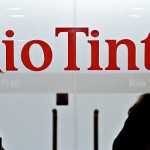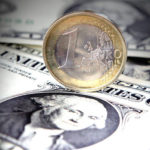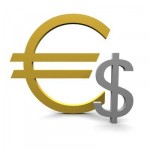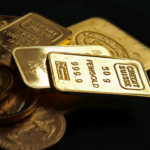On Tuesday gold for delivery in April traded within the range of $1,261.00-$1,276.30. Futures closed at $1,263.90, inching up 0.06% on a daily basis. It has been the 17th gain in the past 27 trading days. The daily high has been the highest level since March 4th, when a 13-month high of $1,279.90 per troy ounce was registered. Gold has trimmed gains to 2.02% so far in March.
On the Comex division of the New York Mercantile Exchange, gold futures for delivery in April were edging down 0.49% on Wednesday to trade at $1,257.70 per troy ounce. The precious metal went down as low as $1,252.60 during the early phase of the Asian trading session, while the current daily high was at $1,265.70 per troy ounce, recorded during early Asian trade as well.
Yesterday the General Administration of Customs of the People’s Republic of China reported that the nation’s trade surplus shrank to USD 32.59 billion in February, while market expectations pointed to a lesser drop (to USD 50.15 billion). In January the Chinese trade surplus was at the amount of USD 63.30 billion, or the largest on record. Total exports and total imports dropped considerably more than anticipated in February, by 25.4% year-on-year and 13.8% year-on-year, respectively. February marked the 8th consecutive month of export decline and also the steepest one since May 2009. It also marked the 15th straight month of lower imports due to falling commodity prices and insufficient demand.
The weaker-than-expected trade data were released several days after the Chinese Premier Li Keqiang said the country was to revise down its annual growth target for the current year to 6.5%-7.0%. In 2015 the Chinese Gross Domestic Product grew at an annual rate below 7% for the first time in over 10 years. The country is the largest producer and the second-largest consumer of gold worldwide.
No relevant macroeconomic reports, which may affect the value of gold, are scheduled on Wednesday.
Market players now turn their attention to Thursdays European Central Bank meeting on policy, where policy makers are expected to boost monetary easing by another EUR 10 billion to a total of EUR 70 billion a month and to reduce the deposit facility rate by another 10 basis points to -0.4%. In January the ECB Governing Council kept the benchmark interest rate intact at the all-time low of 0.05%. In case expectations were met, this would widen the divergence in policies between the ECB and the Federal Reserve Bank, while the latter may be forced to reassess the pace of its tightening cycle. The FOMC will hold its next meeting on March 15th-16th.
Meanwhile, silver futures for delivery in March were edging down 0.26% on the day to trade at $15.375 per troy ounce, after going down as low as $15.195 a troy ounce during the early phase of the Asian session.
Daily and Weekly Pivot Levels
By employing the traditional calculation method, the daily pivot levels for gold are presented as follows:
Central Pivot Point – $1,267.07
R1 – $1,273.13
R2 – $1,282.37
R3 – $1,288.43
S1 – $1,257.83
S2 – $1,251.77
S3 – $1,242.53
By using the traditional method of calculation again, the weekly pivot levels for gold are presented as follows:
Central Pivot Point – $1,256.13
R1 – $1,293.67
R2 – $1,317.43
R3 – $1,354.97
S1 – $1,232.37
S2 – $1,194.83
S3 – $1,171.07





